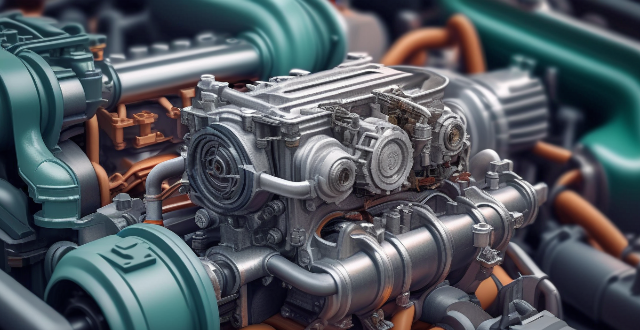The question of whether smaller engines are more fuel-efficient than larger ones depends on various factors, including engine design, operation, and application. While smaller engines generally have less displacement and require less fuel, their efficiency can be affected by load requirements and technology. In city driving, smaller engines benefit from start-stop systems and lower rolling resistance, while larger engines may offer better cruise efficiency on the highway. For towing and hauling, larger engines provide more torque and horsepower. Ultimately, the comparison between smaller and larger engines must be made within the context of individual applications and circumstances.

Are Smaller Engines Always More Fuel-Efficient Than Larger Ones?
The question of whether smaller engines are always more fuel-efficient than larger ones is a complex one that depends on various factors. To provide a comprehensive answer, we'll explore different aspects of engine design, operation, and application.
Engine Size and Efficiency
General Principles
- Fuel Consumption Basics: Generally, smaller engines have less displacement and thus require less fuel to fill their cylinders during each combustion cycle. This can lead to better fuel efficiency in certain conditions.
- Power-to-Weight Ratio: Smaller engines often have a higher power-to-weight ratio, which can result in improved acceleration and potentially better overall fuel economy.
Variables Affecting Efficiency
- Load Requirements: The efficiency of an engine is also determined by the load it needs to carry. A smaller engine may be very efficient at lower loads but struggle and consume more fuel when asked to perform tasks for which it is not designed.
- Technology: Modern engine technology, such as direct injection, turbocharging, and variable valve timing, can significantly improve the efficiency of larger engines, sometimes making them more efficient than their smaller counterparts.
Real-World Applications
City Driving
- Start-Stop Systems: In city driving, where stop-and-go traffic is common, smaller engines often benefit from start-stop systems that cut the engine when idling, saving fuel.
- Lower Rolling Resistance: Smaller engines typically mean lighter vehicles, which have lower rolling resistance and therefore can achieve better fuel efficiency in urban environments.
Highway Driving
- Cruise Efficiency: On the highway, larger engines with more cylinders can operate more efficiently at lower RPMs, potentially offering better fuel economy during long cruises.
- Aerodynamics: At high speeds, aerodynamic drag becomes a significant factor. If a smaller engine results in a more aerodynamic vehicle shape, it can offset the engine size disadvantage.
Towing and Hauling
- Torque and Horsepower: For tasks requiring towing or hauling, larger engines usually provide more torque and horsepower, which can be crucial for maintaining efficiency under heavy loads.
- Transmission Choices: The selection of transmissions also plays a role; a well-matched transmission can help both small and large engines operate in their most efficient power band.
Conclusion
In conclusion, while smaller engines often offer better fuel efficiency due to basic principles of displacement and weight, there are numerous variables that can affect this outcome. Technology, driving conditions, and the specific tasks the vehicle is used for all play significant roles in determining the most fuel-efficient choice between smaller and larger engines. Therefore, it is not accurate to state that smaller engines are always more fuel-efficient than larger ones; rather, the comparison must be made within the context of individual applications and circumstances.